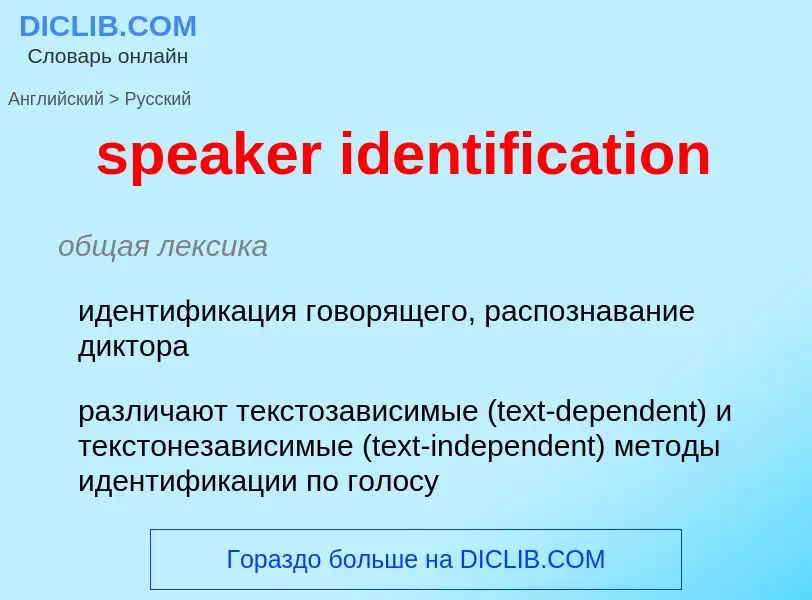Traducción y análisis de palabras por inteligencia artificial ChatGPT
En esta página puede obtener un análisis detallado de una palabra o frase, producido utilizando la mejor tecnología de inteligencia artificial hasta la fecha:
- cómo se usa la palabra
- frecuencia de uso
- se utiliza con más frecuencia en el habla oral o escrita
- opciones de traducción
- ejemplos de uso (varias frases con traducción)
- etimología
speaker identification - traducción al Inglés
общая лексика
идентификация говорящего, распознавание диктора
различают текстозависимые (text-dependent) и текстонезависимые (text-independent) методы идентификации по голосу
синоним
Смотрите также
Смотрите также
Definición
Wikipedia
Speaker recognition is the identification of a person from characteristics of voices. It is used to answer the question "Who is speaking?" The term voice recognition can refer to speaker recognition or speech recognition. Speaker verification (also called speaker authentication) contrasts with identification, and speaker recognition differs from speaker diarisation (recognizing when the same speaker is speaking).
Recognizing the speaker can simplify the task of translating speech in systems that have been trained on specific voices or it can be used to authenticate or verify the identity of a speaker as part of a security process. Speaker recognition has a history dating back some four decades as of 2019 and uses the acoustic features of speech that have been found to differ between individuals. These acoustic patterns reflect both anatomy and learned behavioral patterns.

